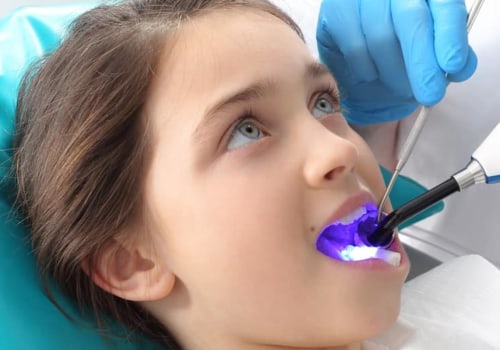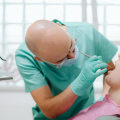It is fast and effective, since it uses light and heat to perform a wide range of dental lasers. They are easy to control and allow the dentist to vaporize or cut tissue painlessly on contact, eliminating tooth decay and removing soft gum tissue. It is less invasive than the traditional method. Hard tissue lasers can cut the dental structure.
Their wavelengths are absorbed by the combination of water and a specific mineral found in teeth. These lasers are most commonly used to prepare or shape teeth for composite bonding, to repair dental fillings that have worn out, and to remove part of the dental structure. Lasers were approved by the FDA in the early 90s and are quickly becoming the instrument of choice in several dental procedures.
Laser dentistry
is especially effective in treating gum diseases, especially gingivitis and periodontitis.Because we specialize in the use of lasers to treat gum disease, many people visit our office who are under the care of a general dentist, but are interested in faster and more comfortable treatment. The two main types of lasers that dentists use during laser procedures are hard tissue and soft tissue lasers. Each laser uses a different wavelength, making it suitable for cutting that specific type of tissue. This works because each type of fabric absorbs the wavelengths of light in different ways.
By altering the wavelength of light (and sometimes the pulse), scientists have discovered how to create lasers with wavelengths of light compatible with tissues in the mouth. Nobody wants to have to have a dental filling or root canal because they assume it's very painful, time consuming, and invasive. Many people avoid them even though they are necessary procedures. Since its inception, laser dentistry has allowed dentists to offer less invasive, more accurate and comfortable oral care treatments to patients.
Mark Sowell is your dentist in Plano, TX. Thanks to the development of laser technology, Biolase's WaterLase iPlus multi-fabric laser allows Dr. Mark Sowell will provide a wide range of dental services with unparalleled comfort to our patients, even without anesthesia. The best part is that it completely eliminates the need for a dental drill and allows us to complete the treatment faster with a minimum of discomfort.
It acts like a miniature pressure washer that eliminates gum disease, eliminates tooth decay infections and more. This technology is non-invasive and is also used in micro-restorative dentistry (ultra-small fillings). The healing powers of WaterLase iPlus technology allow the gums to heal comfortably and make the tooth more comfortable, often desensitizing it. With the use of laser dentistry, patients with severe anxiety can now receive dental care while remaining calm.
Some people have avoided going to the dentist because using dental drills scared them. Now, there are no drills that eliminate the sound, vibrations and pressure they would cause. Removing the drill from the treatment eliminates the emotional stress it causes. In addition, dental procedures can be completed faster than if we were using a dental drill.
Dental lasers work very well in managing pain receptors. You may feel a little discomfort, but there is no pain associated with laser treatments. If you have laser gum reduction surgery, your gums won't grow back. Basically, the laser cauterizes the gums at a micro level to prevent future gummy smiles.
You can choose to undergo laser-free gum treatments. However, this will significantly increase procedure time and recovery time. Dental lasers provide the fastest dental treatments. Laser dentistry is sometimes ideal for children who feel anxious or scared when having dental treatment.
For patients looking for an innovative approach to dental treatment, laser dentistry may be a good option. Laser treatments like these can vary in price, depending on the procedure being performed and the laser equipment used. If you've ever had non-laser gum surgery, you can expect that your post-operative experience after laser dentistry will likely be smoother. As technology advances, so does the ability to solve the same dental problems with laser dentistry that in the past required more invasive techniques.
Laser dentistry can also be used for soft tissue treatments, such as exposing wisdom teeth or gums swollen by braces. Popular sources of education are dental schools and dental associations, as well as the Academy of Laser Dentistry (ALD). While this may sound strange or even painful, in certain procedures, lasers have several distinct advantages over more conventional forms of dentistry. Dentists choose laser dentistry because of the many benefits that make procedures run smoothly and also reduce patient discomfort and healing time.
A dentist who has invested in laser dentistry has more tools to provide the particular procedure that best suits you and your children. Sowell uses the Biolase Epic diode laser, which can be used in cosmetic dentistry treatments, teeth whitening and TMJ therapy. Laser dentistry is a minimally invasive option when faced with gum surgery, tooth decay treatment, or other oral problems. Laser dentistry is a convenient solution for many oral and dental problems, whether serious in nature or simply cosmetic.
. .







